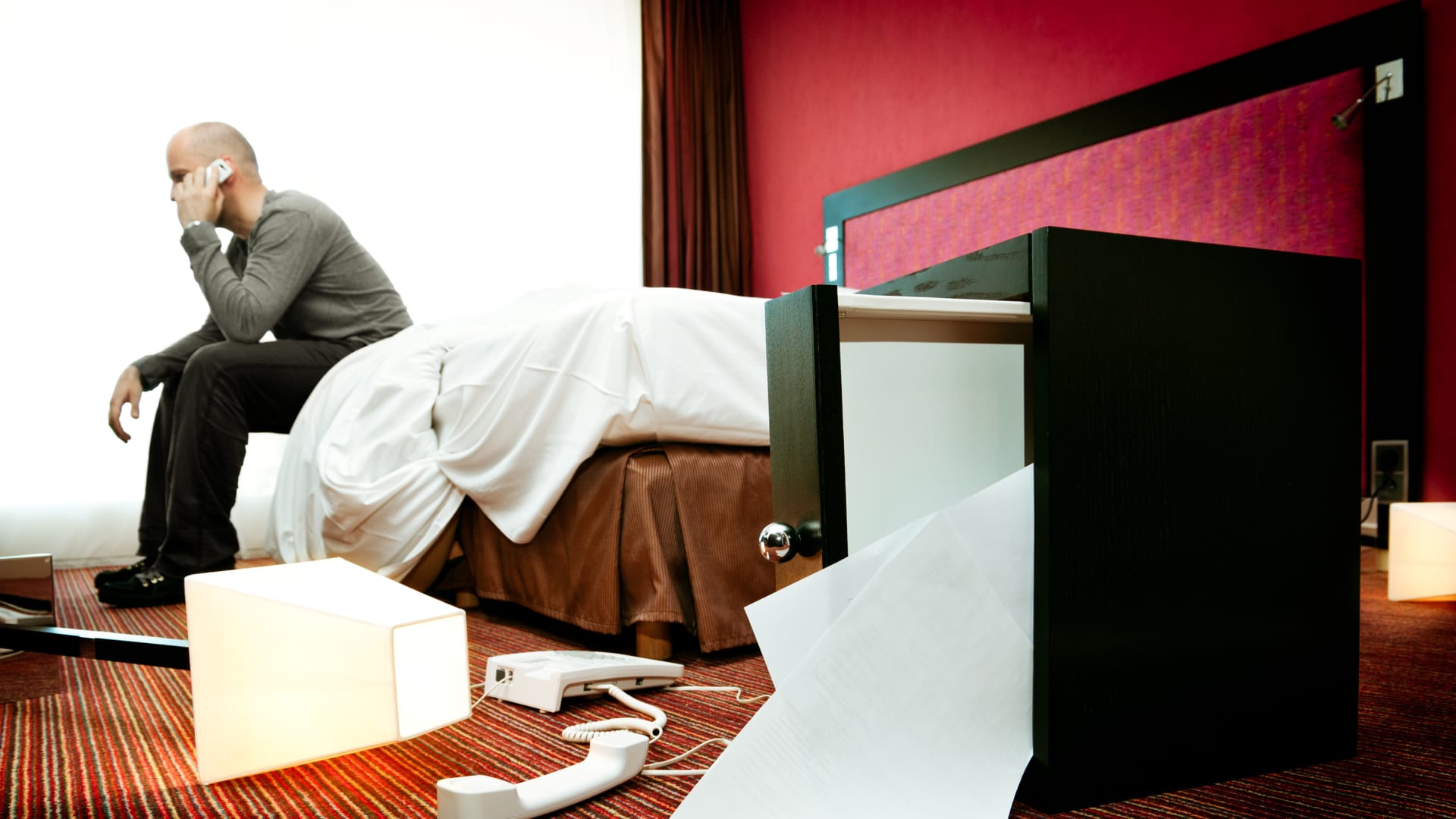“Violence against another person” is by far the most common criminal offense reported in U.K. hotels, new data shows.
Statistics from eight police forces across the U.K. show there were 4,589 allegations of violence and 1,307 of public disorder — which often involves intimidation or the threat of violence — in hotels, motels and guesthouses from June 1, 2021 to May 31, 2022.
That’s more than the 3,999 reports involving theft, robbery and burglary.
There were 1,206 reports of arson and criminal damage, and 1,107 reports of rape and other sexual offenses. Several cases of modern slavery (three) and murder or attempted murder (three) were also reported during the period.
The figures came from freedom of information requests, seen by CNBC, to the 10 largest police forces across England, Wales and Northern Ireland.
Police services in Bristol and Scotland declined to provide data, according to a summary of the results seen by CNBC.
‘Magnets for crime’
Brian Moore, operations director at hotel security consultancy Global Secure Accreditation, told CNBC that hotels are “magnets for crime.”
“You’ve got big buildings full of people who are usually in a country or area they don’t know, so they are a fish out of water. There may be a language barrier, and they are usually relaxed and have their guard down,” said Moore, a former senior police officer who oversaw the London Olympics as director-general of the U.K. border force.
For example, travelers often leave their belongings lying around in hotel bars and restaurants while they talk to people, he said.
“But given these are public spaces, it’s no different to leaving something on a bus,” said Moore.
When asked about the U.K. figures, Moore said, “I think most people would be surprised at the volume of crime since the U.K. is relatively safe. Hotels pride themselves on being safe and secure, and many people think they are.”
With incidents of violence, the cause is often alcohol.Brian MooreOperations director, GS Accreditation
In his experience, the majority of violent crimes occur between people who know one another — although this can include people who met in the hotel — whereas “acquisitive crimes” like fraud, theft, robbery and burglary tend to be committed against strangers.
“With incidents of violence, the cause is often alcohol,” Moore added. “Hotels are places where people tend to over-imbibe, often at times when the least staff and security are available. Staff can break up a gathering but the drinking can continue back in guest rooms.”
How to stay safe
Hotels need to ensure that only people with a legitimate need to be there have access, according to Moore.
Elevators and room corridors should only be accessible via an electric swipe card and have good CCTV coverage. Small hotels, which may not be able to provide these things, are not necessarily more dangerous, he notes, as long as they can differentiate guests from non-guests.
It’s more difficult to secure public spaces while maintaining a welcoming environment, said Moore. But a staff member who approaches someone who looks suspicious, even with just with a friendly word, can deter a potential thief or fraudster, he said.
Guests can improve security by:
- making sure room doors have automatic closing mechanisms and a double lock
- bringing or requesting a door wedge to add an extra layer of security
- using the room safe and keeping an eye on valuables in public spaces
- never saying their room number out loud; this prevents someone from approaching the reception desk and attempting to get a key by pretending to know the guest.
Using hotel Wi-Fi
Hotel Wi-Fi is a notorious target for scammers, said Lee Whiteing, commercial director at Global Secure Accreditation.
Guests should avoid making transactions, entering passwords or opening secure information while connected to it, Whiteing said. Those who use VPNs, or virtual private networks, shouldn’t access sensitive material before logging in, he added.
Hotel guests should also ensure they are connecting to the hotel network and not a similarly named, fake one.
Whiteing recalled running a software test in various hotels to see if anyone would attempt to access his team’s laptops. In the most extreme case, a laptop was attacked 600 times in 24 hours, he said.
Business travelers
Whiteing, who is the former global head of travel at HSBC Bank, also told CNBC that there is a growing awareness that companies need to increase employee safety when it comes to business travel. He also said companies can be liable if they fail to minimize certain risks.
The non-governmental organization ISO, which comprises 167 national standards bodies, recently released a paper identifying threats, risk and prevention strategies that companies can use to manage business trips.
“Historically, checks on accommodation have not always been done well,” Whiteing said. “If a company sent a safety checklist to a hotel, there was little done to verify the answers they gave.”
But an employer has a duty of care when it sends workers abroad or to another city, he said.
“Independent checks need to be done.”
